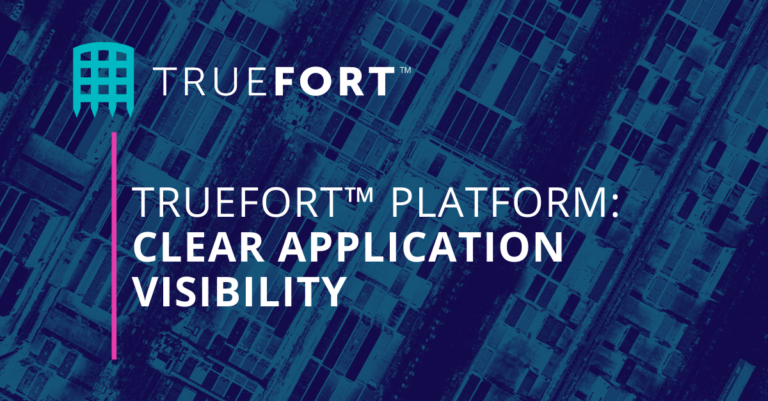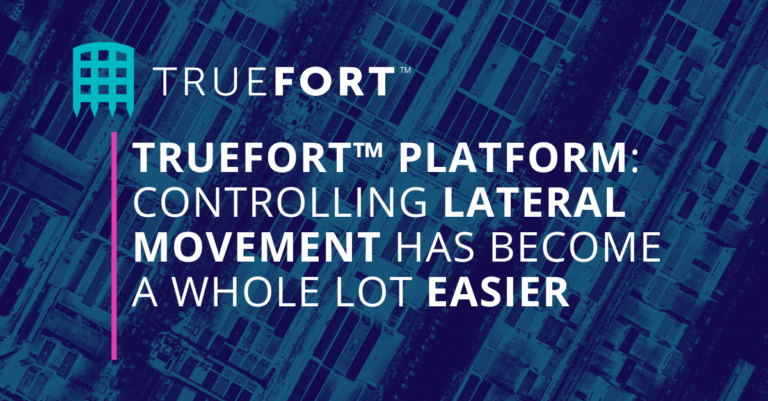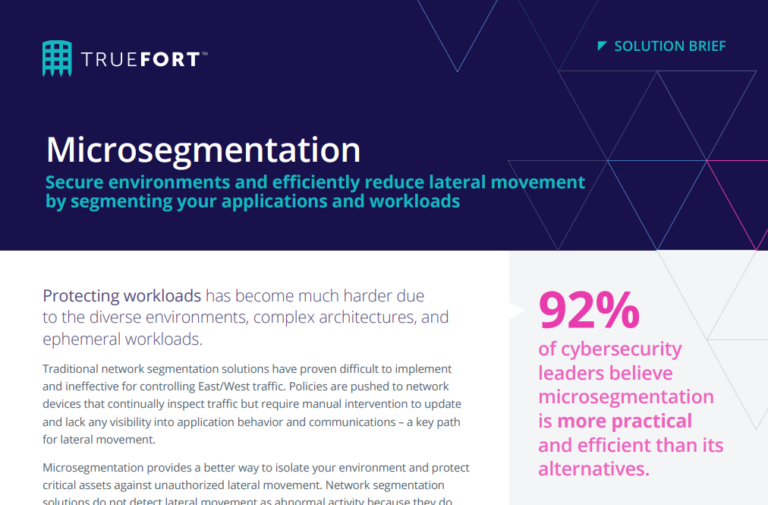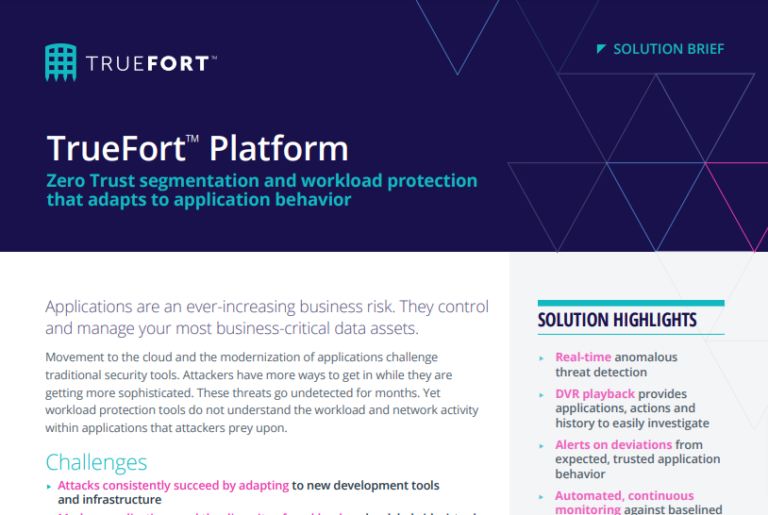TRUEFORT SOLUTION
Meeting and Exceeding the FTC Safeguards Rule
The FTC Safeguards Rule is a series of cybersecurity standards to help organizations manage consumer information with care and diligence. Promoting robust data protection practices, these standards compel companies to assess, maintain, and improve their information security protocols – advocating a solid and strategic approach to customer data protection and monitoring.
Supporting the Core Requirements of the FTC Safeguards Rule
- Risk assessment: Gain clear visibility to track and manage an organization’s risk level across systems, applications, assets, and data. Insight everywhere, from cloud clusters to the data center
- Manage service providers: Easily control devices and permissions, limiting access to customer data with zero-trust best practices and cross-environment microsegmentation
- Monitor effectiveness: Real-time continuous surveillance and analytics to track adherence to prescribed security protocols, ensuring consumer data is constantly protected.
- Promoting improvement: Analytics and reporting to identify areas for betterment and update security measures to more effectively protect consumer information
- Protect critical infrastructure: Implement real-time file integrity monitoring to detect and prevent unauthorized alterations to key configuration and log files

FTC customer data defense best practices

Securely configure assets
Minimize attack surface by reinforcing workloads and maintaining their integrity through ongoing configuration drift and permission creep detection, even in hybrid environments

Ransomware mitigation
Stop ransomware by overseeing entitlements and regulating internal traffic to thwart the spread through service account protection and microsegmentation

Zero-day protection
Real-time and immediate reactions to zero-day exploits. Seeing the unforeseeable, with swift and actionable security team notifications to prevent escalation of attacks

Halt east-west movement
Be sure they’re going nowhere. Stop the lateral movement of any compromise. Oversee service account behavior and regulate internal traffic to protect against attack techniques

Security posture insights
Comprehensive application intelligence for quickly assessing critical security challenges. Real-time visibility of workload security, account activity, and the application stack
FAQ
The FTC Safeguards Rule is a regulation enacted by the U.S. Federal Trade Commission that requires financial institutions to implement a comprehensive information security program to protect the confidentiality and integrity of customer information.
The rule is part of the Gramm-Leach-Bliley Act and applies to organizations that handle consumer financial data. It mandates these institutions to develop, implement, and maintain a set of administrative, technical, and physical safeguards to protect customer information from cybersecurity threats and unauthorized access.
The FTC Safeguards Rule applies to a wide range of financial institutions operating in the United States. This includes not just traditional banks and credit unions, but also companies engaged in activities like lending, brokering or servicing loans, financial or investment advising, providing tax preparation services, and conducting appraisals or real estate settlements.
Essentially, it covers any business significantly engaged in providing financial products or services to consumers, which involves the handling of sensitive customer information.
The goal of the FTC Safeguards Rule is to ensure that financial institutions in the United States effectively protect the confidentiality, integrity, and availability of customer information. It aims to minimize the risk of data breaches and unauthorized access to personal and financial data.
By requiring these institutions to implement comprehensive information security programs, the rule seeks to safeguard consumer privacy and financial data against the growing threats of cyberattacks, identity theft, and fraud, thereby enhancing consumer trust in the financial services industry.
Resources













